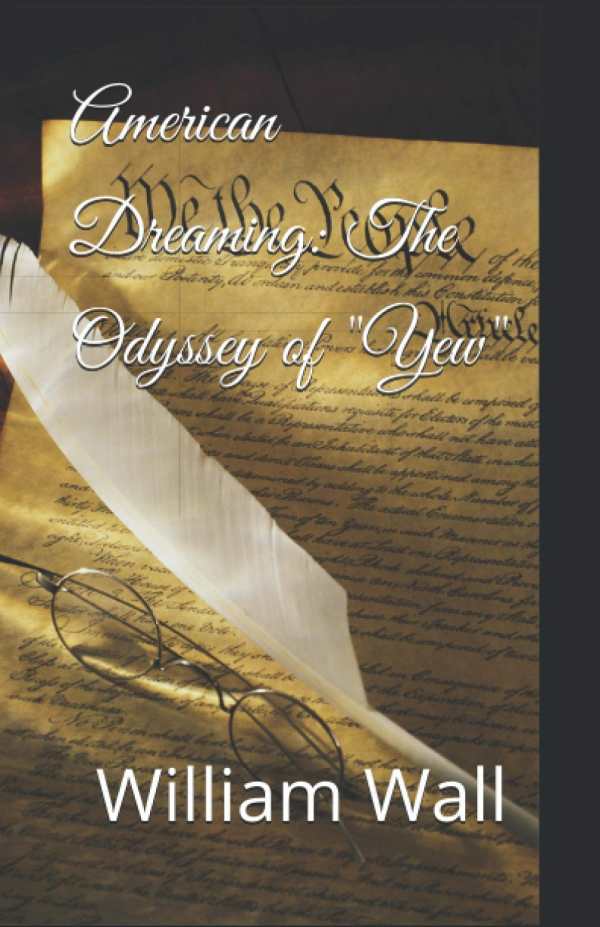
American Dreaming
The Odyssey of “Yew”
Skewering capitalism ably, American Dreaming is a political satire that’s defined by euphemistic humor and a stream-of-consciousness style.
In William Wall’s cerebral satirical novel American Dreaming, a working-class hero is swept into the unfortunate, hilarious whirlwind of consequences that follows the establishment of an ultraright-wing, hypercapitalist theocracy.
Ulysses lives on a farm with his parents. Then Max, a dandy of a business executive who travels via hot air balloon, appears at Ulysses’s door, urging his family to plant his newly developed red, white, and blue corn to pay off their extensive debt. Ulysses, though his overactive conscience warns him against it, takes the deal and is thrust into a series of bizarre situations. He encounters strange people; is arrested, with his creative writing professor, by HISS, the budget cut combo of Homeland Security and the USDA; escapes prison; is recaptured and mistaken for a prisoner on death row; has his skin literally turned the colors and patterns of the American flag; and almost drowns aboard a sinking boat.
The dystopian America of the novel is run by pure capitalists who work to strip away the rights of the poor. It is led by an ultraright party president who attempts to use a constitutional loophole to run for a third term. Jokes and cultural and political commentary abound in the place of a clear plot; Ulysses moves from one situation to the next almost despite himself. He is controlled by circumstances and egocentric others, and his story comes to reflect the chaos and oppression of the working class.
The book’s sentences often run multiple pages long. They are thought-provoking, uproarious, alliterative labyrinths that are full of clever double entendres and blatant symbolism. Still, they are sometimes unwieldy, strung together by conjunctions that lead to overcomplications. The book’s conversations are similarly complex and euphemistic, maximizing humor but leading to stunted character development. The book’s characters become hard to distinguish from one another; many have the same sense of humor and way of speaking.
Ulysses is the moral center of the novel, countering Max’s abominable business suggestions at every turn and explaining to him that having “sociable thoughts for the many to whom few give few thoughts” makes a person a “decent human being.” While few of his wise words make it past the din of the novel’s loud, heartless wealthy, his views about the “two Americas”—the right and the left—dominate the text. This lengthy novel shows how cruel and relentless unregulated capitalism can be, even if Ulysses’s efforts to change the unjust system are unsuccessful.
American Dreaming is a political satire whose euphemistic humor and stream-of-consciousness style ably render an American landscape that’s defined by brutal, free market capitalism.
Reviewed by
Aimee Jodoin
Disclosure: This article is not an endorsement, but a review. The publisher of this book provided free copies of the book and paid a small fee to have their book reviewed by a professional reviewer. Foreword Reviews and Clarion Reviews make no guarantee that the publisher will receive a positive review. Foreword Magazine, Inc. is disclosing this in accordance with the Federal Trade Commission’s 16 CFR, Part 255.
